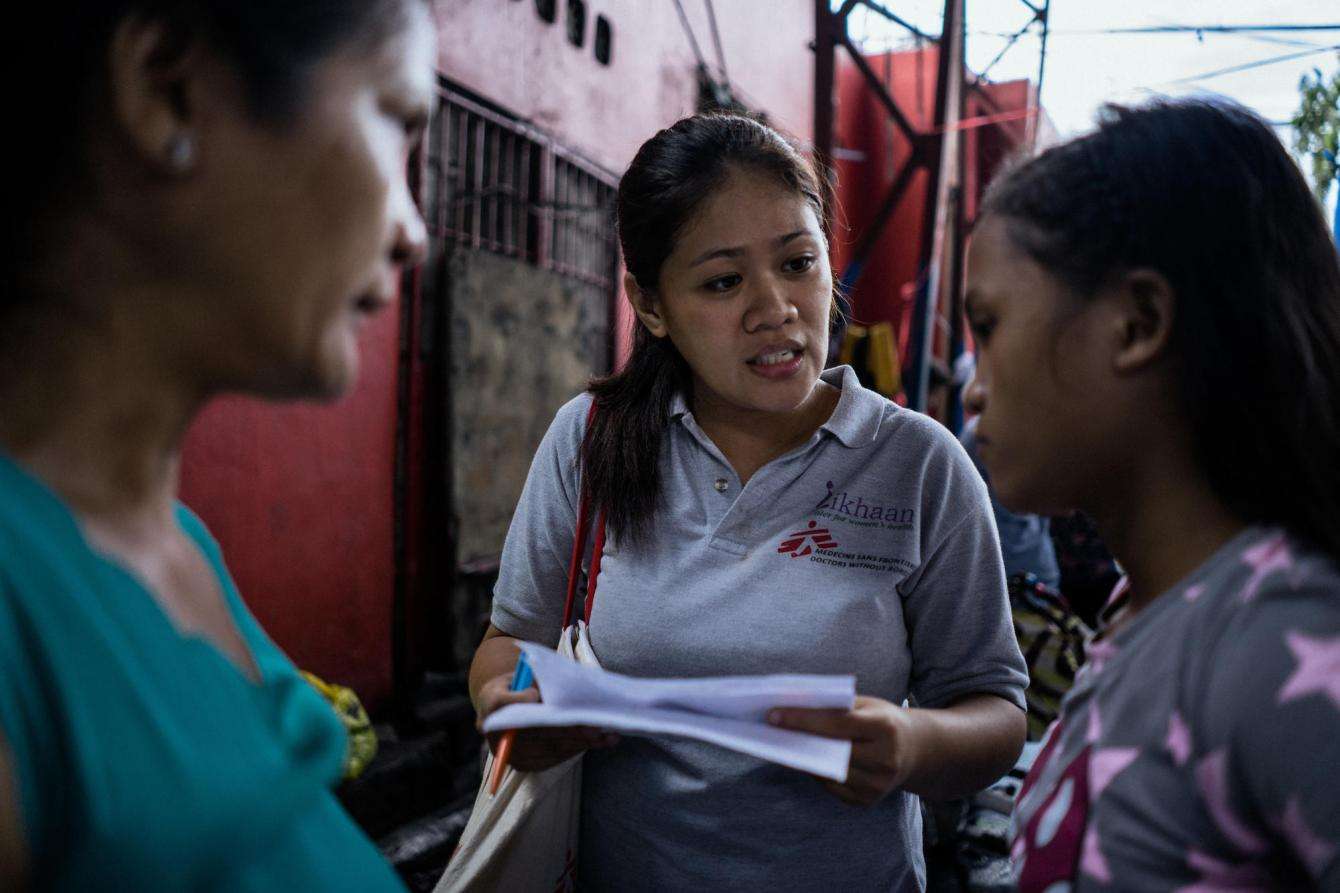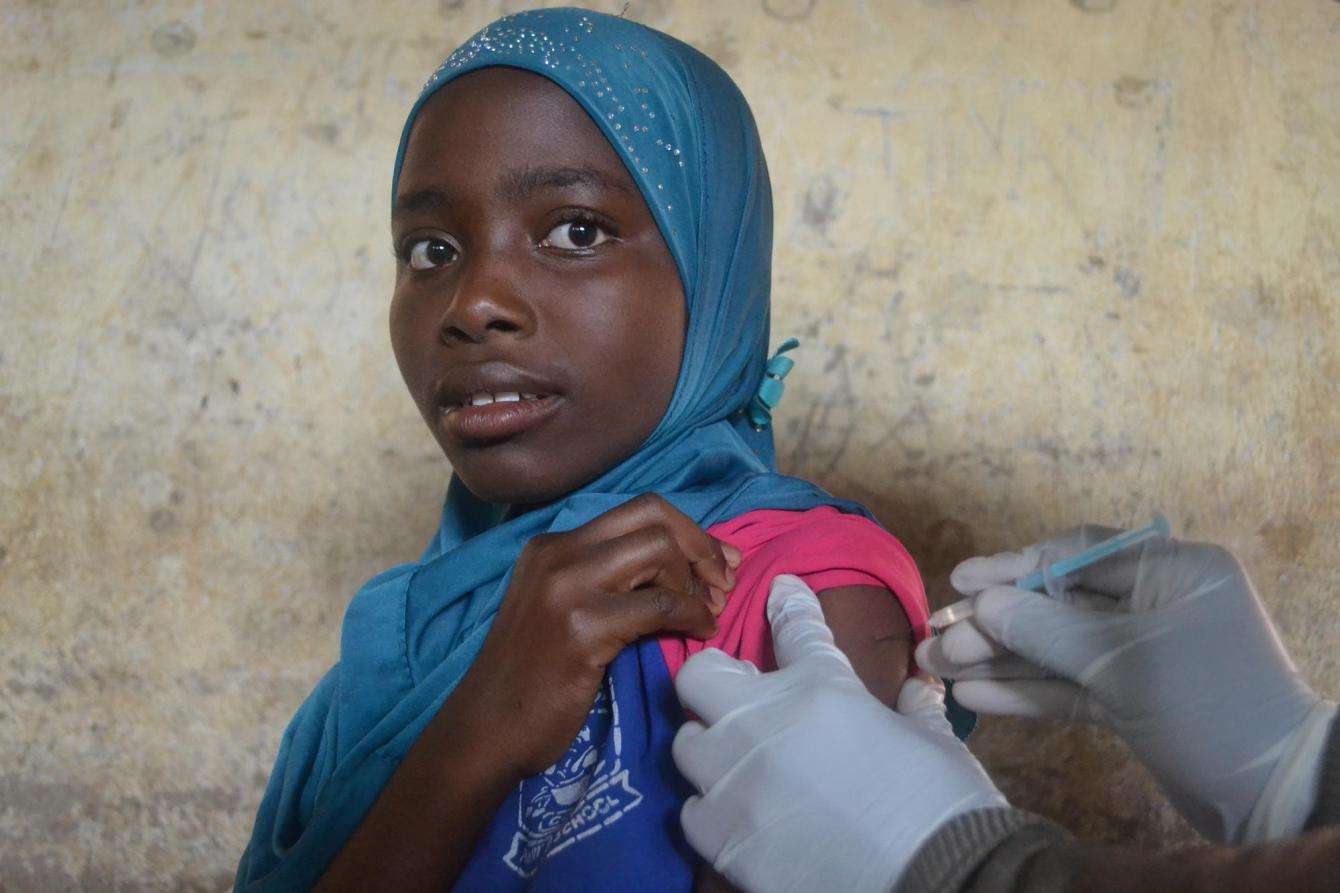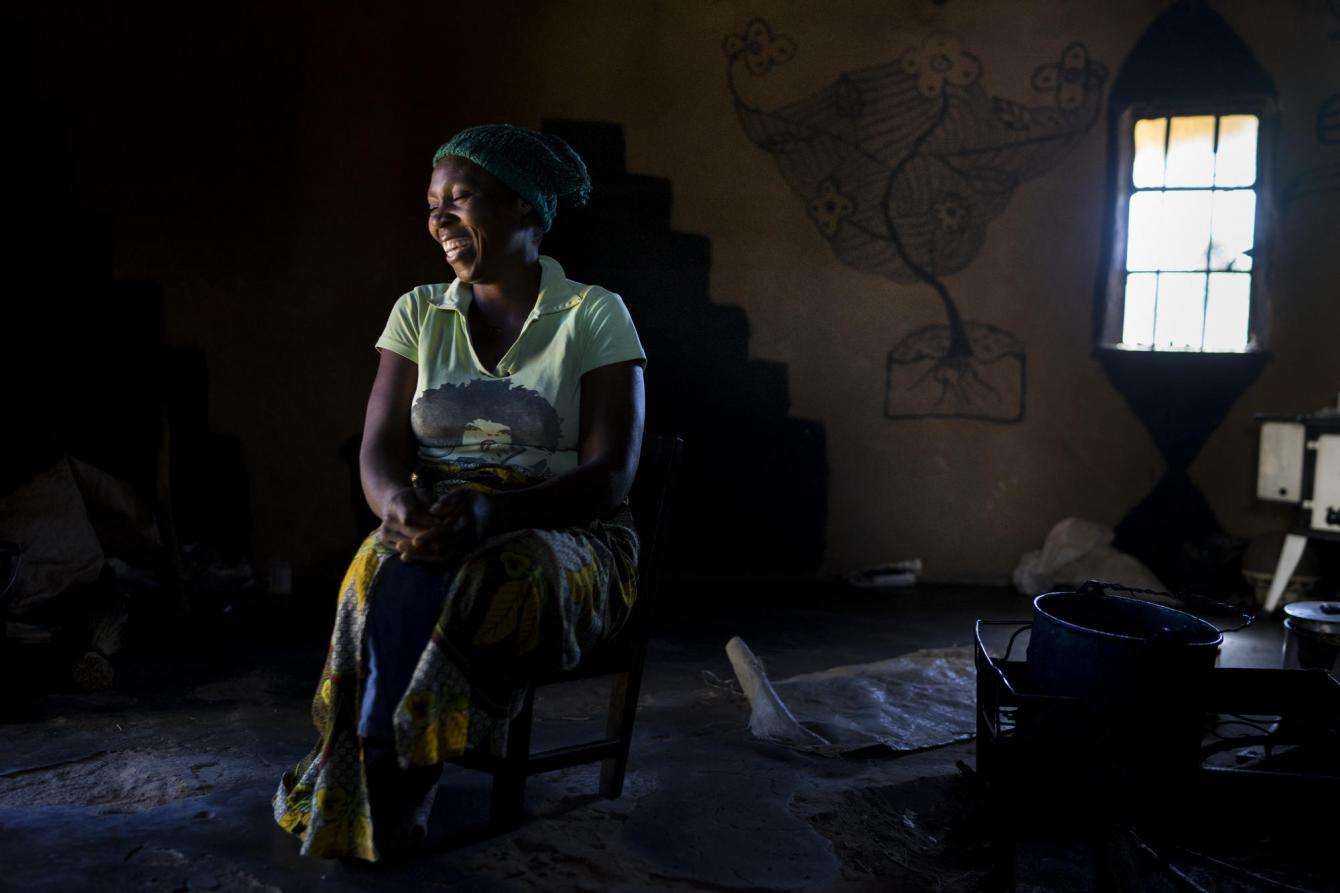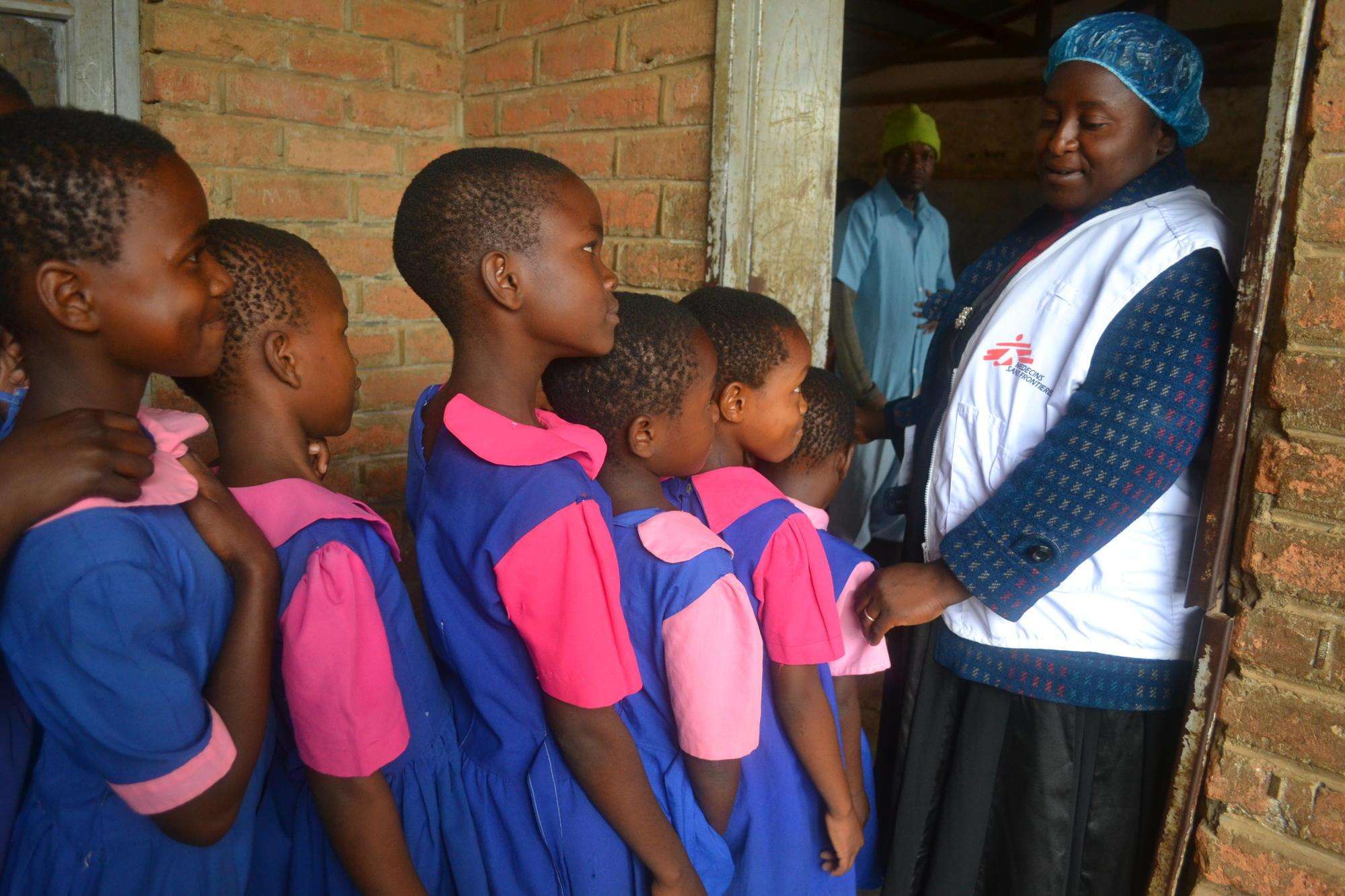An estimated 311,000 women died of cervical cancer in 2018. More than 85 percent of those women lived in low- and middle-income countries. In the same year, 570,000 new cases were diagnosed.
The inequality of cervical cancer’s impact is stark. In 42 countries, including Mozambique, Guatemala, and Nepal, it kills more women than any other cancer, while in countries such as Finland, the Netherlands, and Switzerland, it’s among the least fatal cancers. Mortality is highest in Malawi—where Doctors Without Borders /Médecins Sans Frontières (MSF) has its most comprehensive program. Mortality rates in Mali and Zimbabwe, where MSF is also present, are close behind.
Cervical cancer is preventable—and curable, if detected early. So, why are women still dying of this disease? First, we need to understand more about how the cancer develops.
The [number of lives lost to cervical cancer] is projected to increase in coming years, yet the world is largely silent about these deaths.
Dr. Severine Caluwaerts, obstetrician, MSF
How can you get cervical cancer?
Most cases of cervical cancer are caused by the human papillomavirus (HPV), a sexually transmitted infection that affects both men and women. There are more than 100 strains of HPV, but two particularly virulent strains—types 16 and 18—are responsible for around 70 percent of all cases of cervical cancer.
In many women, the infection will spontaneously clear. But for others, over time, chronic infection causes abnormal changes in the cells of the cervix, leading to pre-cancer. If left untreated, this can progress to cancer over a period of 15 to 20 years. In HIV-positive women and girls, HPV infection is especially aggressive and can progress to cervical cancer in less than half that time.
In Malawi, due to late detection (the average age of diagnosis is 49), many women find out about their infection too late to avoid terminal illness and the suffering that accompanies it. These are the cervical cancer cases that should not be, because they could have been prevented.
How can you prevent cervical cancer?
Prevention of cervical cancer should start early—before girls are likely to be exposed to HPV. Vaccination against HPV is the primary method of prevention recommended by the World Health Organization (WHO) for girls between the ages of 9 and 14.
Screening for pre-cancer is the second step, combined with treatment. In lower income countries, “screen-and-treat” programs make it possible to identify, destroy, or remove pre-cancer. If women receive regular screenings over time, any recurrence can be detected and managed, or the patient can be referred for higher-level care.

Need to step up HPV vaccination
Since the first vaccine’s introduction in 2006, HPV vaccination programs in early uptake countries like Australia have shown impressive success. There are now confident predictions that cervical cancer will be eliminated in high-income countries in the near future.
There are currently two pharmaceutical corporations that produce three vaccines targeting cancer-causing HPV strains. The pharmaceutical company Merck dominates sales with two of the three vaccines.
Only 21 percent of low-income countries have started using an HPV vaccine, compared to 79 percent of high-income countries.
But Merck has failed to meet the demand from the countries hardest hit by cervical cancer. The vaccine remains unaffordable and unavailable for many countries, with Merck prioritizing higher-paying customers such as those in European and North American markets. As a result, only 21 percent of low-income countries have started using an HPV vaccine, compared to 79 percent of high-income countries. As a stop-gap measure for this critical vaccine shortage, the WHO has issued new guidance, recommending that some countries vaccinate only a single age group, such as 9-year-olds.
As a result, MSF is seeing countries that have committed to roll out HPV vaccination forced to leave millions of girls unprotected. Vaccinating boys also helps reduce the spread of cervical cancer within communities since HPV is transmitted sexually. Whereas some countries, such as Australia, have extended vaccination coverage to include boys, supply issues led the WHO in 2019 to call for a suspension in providing boys with the vaccination until all girls who need it are covered.

“Screen-and-treat” to prevent cervical cancer
MSF’s most significant work in cervical cancer to date has been in screening. In 2018, our teams screened more than 20,000 women in five countries in order to halt the advance of pre-cancer.
Screening remains key to cervical cancer prevention despite the effectiveness of HPV vaccination, especially as many women today grew up before the introduction of the vaccine, and many young girls still don’t receive it. But if you screen, you must also be able to treat.
In low-resource settings, “screen-and-treat” has been designed to achieve as much as possible for the patient in just one visit to her local clinic, by one health care provider.
Using visual inspection with acetic acid (VIA), nurses and midwives are trained to identify abnormalities or pre-cancer on the cervix with their eyes alone, or using a camera or a smartphone—a method called cervicography. They are also equipped to treat what they find, within defined parameters. Using an electrical probe, they can freeze pre-cancerous lesions—a process known as cryotherapy—or heat them—this is called thermal ablation—in order to destroy them. The whole consultation, with counseling throughout, can be completed in 30 minutes.
Pre-cancer that cannot be treated on the spot is referred for a loop electrical excision procedure (LEEP). If cancer is suspected, MSF can also make arrangements for a biopsy.
The relatively simple infrastructure and equipment needed for “screen-and-treat” makes it a cost-effective strategy in places where sophisticated analytics are out of reach due to cost, distance, or a lack of the complex resources needed to support them. MSF has also taken “screen-and-treat” on the road to make it accessible for even more women—installed in a bus in the Philippines, and in a pop-up tent in Zimbabwe.
Waiting for symptoms is waiting too long.
To help strengthen capacity in ministries of health and among local partners, MSF focuses on mentoring nurses and introducing consistent quality assurance through peer review and expert support. Community engagement is also essential in order to share the story of how “screen-and-treat” prevents cancer, how waiting for symptoms is waiting too long, and how a positive screening result is usually not a cancer diagnosis, but an opportunity to stay well.
In Gutu district, Zimbabwe, “screen-and-treat” uptake has reached 75 percent of the target population.

Access to surgery
If a cancer develops, curative options are limited in low-resource settings. Surgery requires specialized training and skills that are often hard to get, and access to chemotherapy and radiotherapy can be even rarer.
A complex and invasive cancer, cervical cancer is only able to be treated by surgery in its early stages. The operation, an extended abdominal hysterectomy, and the ensuing hospital stay, can be daunting for a woman and her family in many ways.
To complete the full spectrum of prevention and treatment in its Malawi program, MSF opened an operating theater and inpatient ward in the capital, Blantyre, in December 2019. In other locations, Zimbabwe and Mali, for example, we directly support women by referring them to a specialized hospital that can provide this lifesaving option.
What is MSF doing to address cervical cancer?
Doctors Without Borders/Médecins Sans Frontières (MSF) provided cervical cancer care across five main projects in 2019.
In Gutu, Zimbabwe, MSF screens women for abnormalities and pre-cancerous lesions using visual inspection with acetic acid and cervicography (VIAC). Our teams provide on-the-spot treatment with cryotherapy for pre-cancerous lesions and refer women for surgery or radiotherapy as required.
MSF works in partnership with the local non-governmental organization Likhaan to provide cervical cancer screening and cryotherapy alongside other sexual and reproductive health services in the capital Manila. In 2017, we vaccinated 22,000 girls aged between 9 and 13 against HPV.
MSF began providing VIA screening and cryotherapy in Eswatini (formerly known as Swaziland) in 2016. Until handing over the project to the Ministry of Health in 2019, MSF supported training for nurses and piloted a mobile health and telemedicine program for nurse-led diagnosis.
In the capital, Bamako, MSF runs an oncology project, including cervical cancer care. Since 2018, we have offered palliative care and support services at Point G University Hospital and in patients’ homes. In 2020, we also began supporting screening services for women in Bamako.
MSF’s comprehensive cervical cancer project in Chiradzulu and Blantyre, Malawi, provides HPV vaccination, VIA screening and pre-cancer treatments. Case management includes palliative care, as well as surgery, which commenced with the opening of an operating theater in November 2019.
Addressing the gap in palliative care
MSF continues to see women in their 40s and 50s come in too late for effective treatment, and diagnosed with advanced cancer. They may have been suffering for some time in a community where little is known about cervical cancer. They may have spent considerable money seeking care for unexplained symptoms, or struggled financially as it became harder to work. Their cancer may be disfiguring and stigmatizing—leaving them even more socially isolated.
The burden of cervical cancer has created an enormous need for palliative care, a gap that MSF has recognized in its efforts to reduce suffering.
In Mali’s capital, Bamako, we support a program of hospital- and home-based palliative care in one of the only hospitals in the capital with this type of service. Some 50 percent of the patients travel there from outside the city. The service covers prevention and management of symptoms, pain relief, and psychosocial and spiritual support. Women are also treated for the side effects of chemotherapy, non-cancer disorders, and wounds caused by tumors.
Twice a week, the team also travels to the homes of patients, often so destitute or unwell that they simply cannot go to the hospital.
How can we end preventable deaths?
Huge advances have been made in high-income countries, yet there are increasing gaps between the best quality of care and what is provided in resource-limited settings. The WHO has released its draft strategy on the elimination of cervical cancer, which is up for approval at the World Health Assembly in May 2020. Without scale-up in vaccination, screening, and treatment, the death toll will continue to mount. What more can be done?
There needs to be greater supply of the HPV vaccine for the girls most at risk. The vaccine needs to be available at a lower price to ensure that it can be accessed affordably by every country. Humanitarian organizations such as MSF must also be able to access the HPV vaccine at an affordable price for the people we treat.
More women need to be screened and treated so HPV can be detected earlier, before it is too late. This requires the maintenance of a trained health workforce and a reliable flow of supplies. “Screen-and-treat” needs to be integrated as standard care to existing health services, including primary health care centers in rural regions and HIV programs. Between 2017 and 2018, MSF doubled its “screen-and treat” coverage and has dedicated resources to develop evidence on scalable models of care. Yet this remains a small contribution to an enormous problem.
Cervical cancer treatment must be urgently expanded. With mortality rates still so high, chemotherapy, radiotherapy, and surgery need to be accessible for women diagnosed early enough. Lastly, to help women and their communities navigate pre-cancer and cancer, the importance of psychological and social support systems cannot be overlooked.
It is unacceptable that a woman’s likelihood of dying from cervical cancer depends largely on where she lives. Together we can change that.




